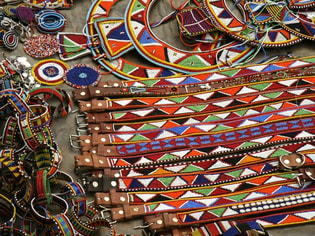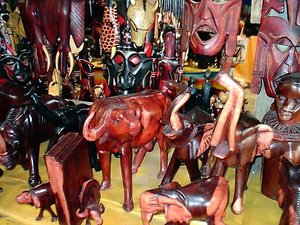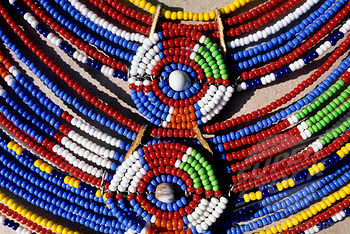Tips for a comfortable, happy and safe visit ...
Code of Conduct ... Shopping
It is not easy to know which souvenirs or gifts to avoid buying, especially as international trade in some is banned altogether.
You may be tempted to buy exotic souvenirs, but trade in many animals, plants and products made from them, is controlled internationally in order to safeguard wild species.
These endangered species include many corals, reptiles, orchids and cacti, as well as the more obvious tigers, rhinos, elephants, whales and turtles
CHECK BEFORE YOU BUY - YOU MAY BE ABOUT THE BREAK THE LAW
You may be tempted to buy exotic souvenirs, but trade in many animals, plants and products made from them, is controlled internationally in order to safeguard wild species.
- Over 800 species of animals and plants are currently banned from international trade.
- A further 25,000 are strictly controlled by CITES and European Union legislation.
These endangered species include many corals, reptiles, orchids and cacti, as well as the more obvious tigers, rhinos, elephants, whales and turtles
CHECK BEFORE YOU BUY - YOU MAY BE ABOUT THE BREAK THE LAW
Tigers, Leopards and Jaguars
CITES forbid trade in skins and products from many cat species, such as the tiger, leopard and jaguar.
Do not buy skins, handbags or coats made from them.
Traditional Medicines
The tiger - one of the world's most endangered species, is also threatened by demand for traditional
medicines which may contain tiger bone, rhino horn or other endangered species.
Turtle and Tortoiseshell
All trade in sea turtle products is internationally banned. Jewellery, combs, sunglasses or even whole
shells from sea turtles, are often available on exotic islands. If you want to help these species survive,
do not buy them.
Live Animals
Do not purchase live animals or birds that require permits. Love Birds, in particular, are protected.
The trade in many plants and animals is controlled so that it does not threaten their survival in the
wild.
Elephant Ivory
In 1997, CITES agreed to allow very limited export of ivory and elephant products in Zimbabwe.
Otherwise, all trade in elephant products, ivory trinkets, leather goods, ornaments and tusks, is
internationally banned.
If you are visiting Zimbabwe, you are strongly advised to check with the Department of the
Environment, Transport and Regions before bringing anything back. In all other African and Asian
countries, export of these products is still banned, even though you may see them for sale in shops,
hotels, markets and airport duty-free areas.
Chimpanzees and Gorillas
Chimpanzees and Gorillas are protected under international law. All trade in products from these
animals - heads, hands and other souvenirs - is illegal.
Orchids and Cacti
Certain orchids and cacti - such as the Mexican Living Rock cactus, is banned from trade.
Coral
You need to be sure that coral necklaces, earrings and ornaments are not derived from endangered
species. These are not easy to identify on market stalls or in the shops, so if you are in doubt, don't
buy them.
Marine Products
As well as coral, please resist buying marine souvenirs, such as shells and mounted fish. Although
mostly legal, many species are over-harvested, causing irrecoverable damage to the reefs and marine
ecosystems.
Reptile Skins
Many reptile skins, such as crocodiles, snakes and lizards, are covered by strict European Union
controls. These products include snakeskin boots, bags, belts, shoes and watch straps.
There are many locally produced souvenirs which are attractive and cheaply priced - kikois, kangas and other cotton goods, soapstone and wooden carvings, jewellery, copper bangles, malachite, baskets and weaving work.
The Masai are particularly renowned for their beautiful beadwork - belts, bangles and necklaces.
The Masai are particularly renowned for their beautiful beadwork - belts, bangles and necklaces.


